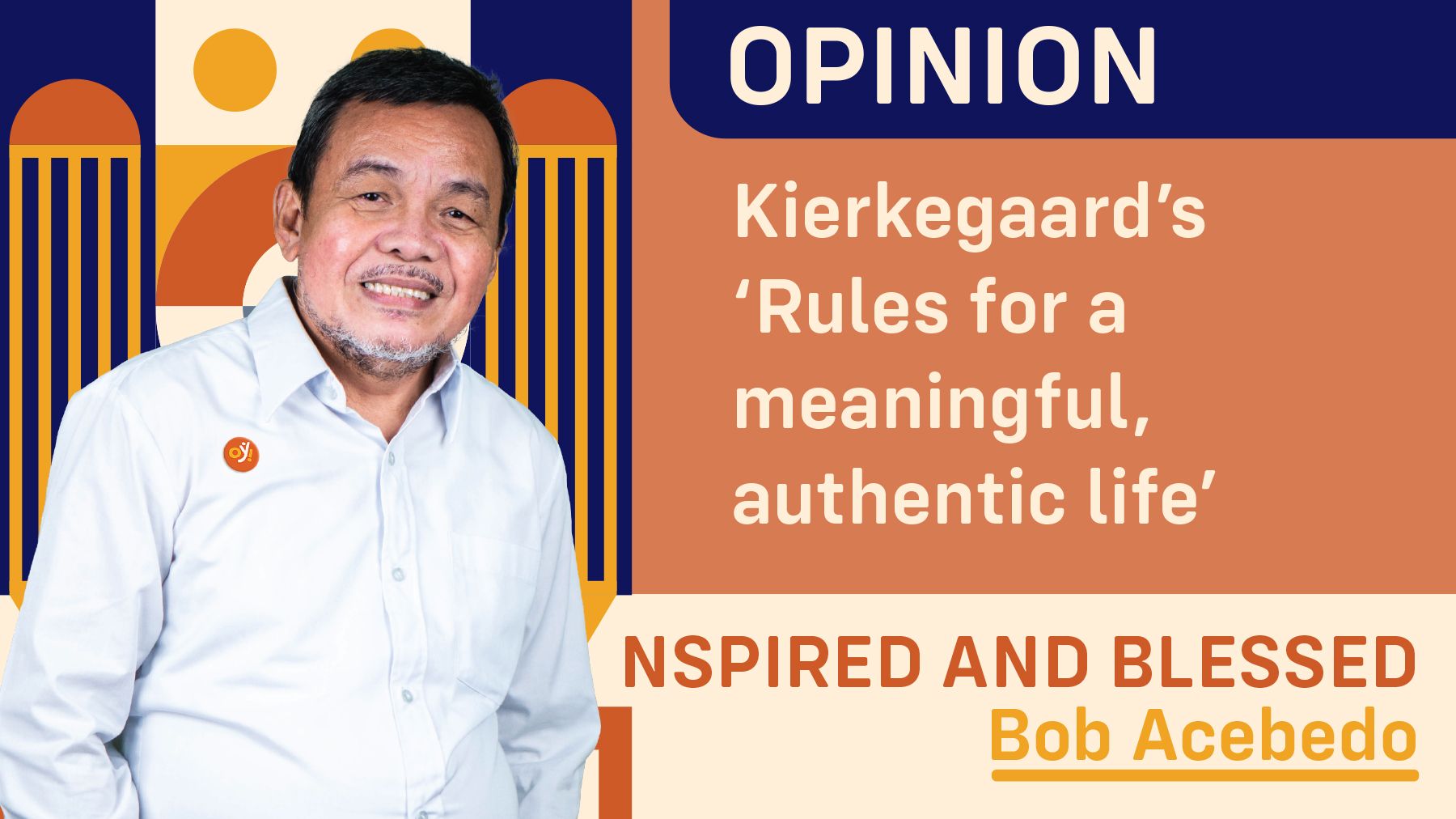Back in my old seminary days when I was engrossed in philosophical studies, one of my favorite philosophers is Soren Kierkegaard (1813-1835), a Danish philosopher, theologian and poet, considered by many as the father of existentialism.
Existentialism is a prominent philosophical movement,
originating in the 19 th and 20 th centuries, that explores the human
existence, emphasizing individual experience, freedom, and
responsibility. Key concepts within existentialism include
authenticity, absurdity, anxiety, and the search for meaning.
Kierkegaard’s philosophy can be characterized as a form of
Christian existentialism, emphasizing the role of subjective
experience and personal relationship with God. He argued that
true faith requires a leap of faith, as it goes beyond rationality
and the limitations of human understanding.
Whilst for this piece, I’d like to tackle on Kierkegaard’s
thoughts on how to navigate life’s complexities with authenticity
and purpose.
Blake Griffin Edwards, in his article “4 Ways to Find Greater
Fulfillment in Life” in psychologytoday.com explores Kierkegaard’s
“4 rules for a more authentic and meaningful life”:
1. Cultivate Self-Awareness and Introspection
Kierkegaard emphasized the importance of self-awareness
and introspection as foundational to understanding one’s own
existence and making authentic choices. He argued that true self-
knowledge requires a deep and honest examination of one’s
thoughts, feelings, and motivations, involving questioning
assumptions and beliefs inherited from culture and upbringing, a
theme echoed in his fascination with Socratic self-knowledge.
2. Embrace Uncertainty and Ambiguity
Kierkegaard’s philosophy also challenges us to embrace
uncertainty and ambiguity. He contended that life’s complexities
cannot be reduced to simple answers or solutions. Instead, we
should be willing to live with paradox and contradiction,
remaining open to new ideas and perspectives. This openness
requires a willingness to change our minds in the face of new
information, a stance that stands in contrast to the search for
absolute certainty. Kierkegaard critiqued a purely aesthetic or
contemplative conception of self-knowledge and emphasized the
importance of engaging with life’s uncertainties actively and
responsibly.
3. Take Responsibility for Your Life and Choices
A central tenet of Kierkegaard’s philosophy is the imperative
to take responsibility for one’s own life and choices. He argued
that individuals cannot blame their circumstances or external
factors for their problems. Instead, they must own their thoughts
and actions, acknowledging their weaknesses and flaws. This
process of self-improvement and growth is essential for
overcoming despair and achieving a state of self-acceptance.
Kierkegaard’s emphasis on the teleological view of the self and
the quest for narrative unity highlights the ongoing nature of this
responsibility.
4. Accept Your Own Mortality
Finally, Kierkegaard urges us to embrace our own mortality,
recognizing that life is fleeting and impermanent. Accepting the
uncertainty of life and the inevitability of death can lead to a
sense of peace and contentment that transcends fears and
anxieties. This acceptance encourages living in the present
moment, fully engaging with the richness of life’s experiences.
Kierkegaard’s perspective on faith and the presence of God
deeply shaped his conception of acceptance, as he suggested that
a deeper sense of purpose and meaning can be found in our utter
dependence upon God.
#WeTakeAStand #OpinYon #ColumnbyBobAcebedo #InspiredandBlessed
